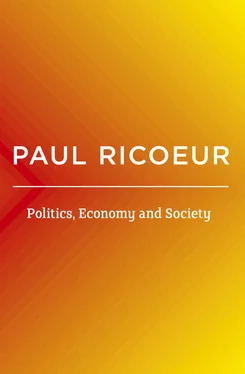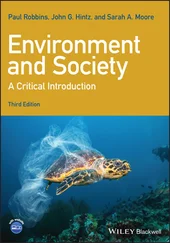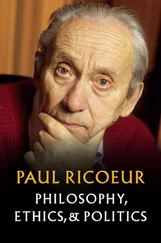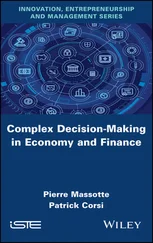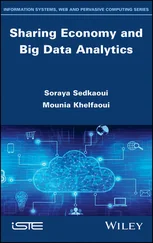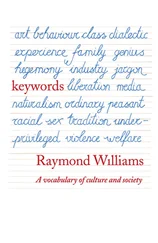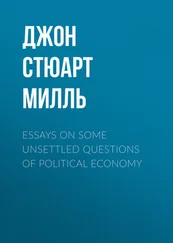And yet, as Lukács saw, in the theory of “false consciousness” there was a grand theory of masks, illusion, unreality, quite different from the crude theory of reflection (a reflection is still something: for example, a reflection in water, in a mirror). One has only to think of the great texts on the State in Marx’s early writings, in the Contribution to the Critique of Hegel’s Philosophy of Right and in The Jewish Question : “In the State [man] is the imaginary member of a fictitious sovereignty … [He is] filled with an unreal universality.” 11The illusory, the unreal, false consciousness, these are something other than reflections!
Finally, it is on the occasion of these analyses worthy of Plato’s Sophist (the unreal reality of false consciousness!) that Marx sank into the crudest materialism. It is the symmetry of idealism and materialism, and the purely polemical definition of the latter term, that caused Marxism to swing from a humanist realism to a historical materialism.
— Lenin is responsible for two things.
1. In his theoretical work, centered around Materialism and Empirico-Criticism , he continually pushed the theory of consciousness and of ideology in the most reductive direction. His struggle against neo-Kantianism, against Mach, against theories of consciousness conceived as the center and origin of meaning, places him in a polemical situation comparable to that of Marx in opposition to Hegelian idealism. At the same time, Marxists were accentuating alleged scientistic claims of the theory of value in face of the resistances of bourgeois economists. Marxism claimed to triumph, on empirical grounds, as a scientific theory of currency, crises, and the laws of the market. It readily placed itself on the terrain of nineteenth-century scientistic positivism. Now, it is doubtful that Marxism is on its true terrain here: its theory of value is a consequence of its theory of alienation; it describes the alienated world. Materialism itself is a description of the loss of the human in things; this is not a scientific law, but the truth of a world without truth. All this, which is implicit in original Marxism, is lost in the claim to establish it as objective science.
2. But it is perhaps the theory of the proletarian State and its neo-Machiavellianism which bears greatest responsibility for the petrification of Marxism. The State and Revolution is in this regard a fundamental point of reference in the history of dogmatic Marxism. In opposition to the social contract theory, the State appears here not as the organ of the general will, but as an instrument of domination, of the oppression of one class by another. This exercise in lucidity, which denounces the unreality of the State insofar as it is law and its violence insofar as it is power, turns into an apology for proletarian violence; since the State is fundamentally repressive and penalizing, it is just such a State that the proletarian revolution will set up against the enemies of the people: “the State is an evil to which the proletariat will fall heir” until it withers away. The State “is an inheritance of evil, bound to be transmitted to the proletariat when it has become victorious in its struggle for class supremacy, and the worst features of which it will have to lop off at once, as the Commune did, until a new race, grown up under new, free social conditions, will be in a position to shake off from itself this State rubbish in its entirety.” 12
One may wonder if this commerce with violence has not reconstituted Marxism as “false consciousness,” as “ideology.” Here once again is the ruse of reason, with the reason of State: here once again are secrets, lies, craftiness, and the lack of transparency of action , once action has been integrated into the shadowy strategy of the proletarian State. Step by step, the entire domain of truth is frozen in place: the Party declares the truth about art, science, public and private morality.
— Marxism’s political philosophy leads us to a consideration of the final factor in the petrification of Marxism: the practice of the one-party system. The idea that there exists a group of people who have a monopoly on the interpretation of history as a whole, the idea that this group constitutes the sole central perspective on the whole – ideas such as these are the source of the dogmatism that has frozen Marxism. This dogmatism with respect to truth, itself related to the political philosophy of Marxism-Leninism, rebounds on all Marxist theses, altering them in return: everything that remained ambiguous in Marxism is firmly settled along the line of orthodoxy; the more dogmatic – the more “materialist” and less “dialectical” – interpretation wins out on a regular basis over the more complex, the more open interpretation.
Does an open Marxism still exist somewhere? Do its adepts – cut off from the Party apparatus and from real power, separated from action and relegated to a bookish doctrine – still have a future?
It is a matter of determining what today constitutes the audience of non-Stalinist, non-dogmatic Marxists, who are not engaged in the Party’s orthodoxy. Only the history of the coming decades will show whether an open Marxism can still renew scholastic Marxism from the inside.
Christians should at least know that original Marxism is no less irreligious than contemporary communism. It is not because it is more “humanist” and less “materialist” that it is less atheist. Quite the opposite: its radical humanism is perhaps closer to the source from which atheism springs, namely the conviction that human beings are the producers of their own existence.
1 1 Ludwig Feuerbach, The Essence of Christianity, tr. M. Evans (London: Trübner and Co., 1881), p. 31.
2 2 Karl Marx, Economic and Philosophical Manuscripts, in Early Writings, tr. R. Livingston and G. Benton (New York: Vintage Books, 1975), p. 357.
3 3 Karl Marx and Frederick Engels, The German Ideology (Moscow: Progress Publishers, 1976), p. 42.
4 4 Ibid., p. 41.
5 5 Marx, Early Writings, p. 349.
6 6 Ibid., p. 324.
7 7 Ibid., p. 287.
8 8 Ibid., pp. 323–4.
9 9 Pierre Bigo, Marxisme et Humanisme (Paris: Presses universitaires de France, 1953).
10 10 Marx, Early Writings, p. 357.
11 11 Marx, The Jewish Question, in Early Writings, p. 220.
12 12 Friedrich Engels, Introduction to the German Edition of Marx’s The Paris Commune (New York: New York Labor News Company, 2005), p. 20, quoted by Lenin.
It is difficult to speak about socialism today: socialism is a key word for hundreds of millions of people and, at the same time, formidably equivocal in our economic and political language. Does “socialism” designate the program of Western socialist parties, or the authoritarian stage of Eastern communism before the withering away of the State? Does it refer to the vague demands of the Left just about everywhere in the world? In India, in Guinea? And how does it differ from neo-capitalism? Is it the doctrine of the “Founding Fathers” or the actual experience described on the ground? How are we to avoid stitching together a reformist practice and a revolutionary phraseology? We might then be tempted to give up this term on the pretext that it is out of date, that it is part of the Left’s logomachy, or that, under its cover, we are only rehashing worn out analyses. But then the danger is that we are “throwing the baby out with the bathwater,” the kernel of hope with the chaff of words. How can we retain the aim and renew the analyses ? My task is to rediscover these enduring aims. André Philip’s task will be to recalibrate the new analysis in line with the fundamental intention of socialism. 1
Читать дальше
